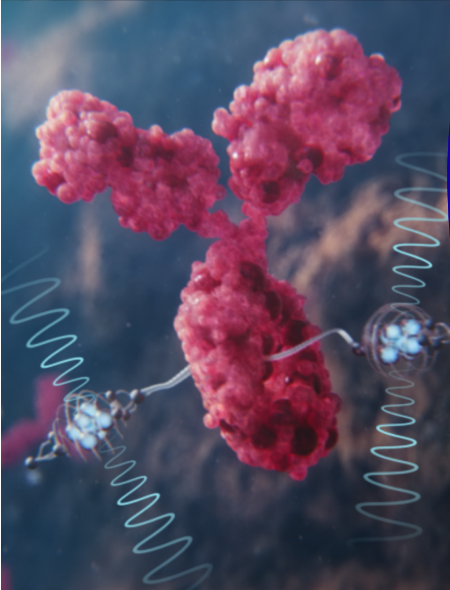First Patient Dosed in Telix’s STARBURST Study

The first patient has been dosed in a Phase II study of the Telix’s carbonic anhydrase- (CAIX)-targeting PET/CT imaging agent TLX250-CDx (89Zr-DFOgirentuximab), exploring this potential target across a broad range of cancer indications.
The STARBURST study (NCT05563272) is a prospective, open label Phase II “basket” study to investigate CAIX expression in patients with a diverse range of solid tumors – including breast, cervix, colorectal, gastric, esophageal, head and neck, lung, ovarian, pancreatic and vulval cancers – for potential diagnostic and therapeutic applications.
CAIX is a protein overexpressed on the surface of clear cell renal cell carcinoma (ccRCC), the cancer target in Telix’s highly successful Phase III ZIRCON study. It is also expressed to varying degrees in many other advanced-stage solid tumors with poor prognosis. Tumors that express CAIX are typically hypoxic, more aggressive and feature a tumor micro-environment (TME) that can be resistant to therapy, particularly immunotherapies.
STARBURST is exploring these tumor types in the refractory setting to assess whether tumor sites can be targeted, both for imaging and potentially therapeutic purpose. The study builds on encouraging preliminary data from two investigator-initiated studies in triple-negative breast cancer and non-muscle-invasive bladder cancer, which demonstrate the potential of TLX250-CDx in these disease settings with unmet medical need. The half-life of 89Zr means that imaging these tumors with TLX250-CDx will enable predictive dosimetry for therapeutic radionuclides, effectively serving as a theranostic “scouting” study for future studies harnessing therapeutic radionuclides.
Principal Investigator for the STARBURST study, Dr Jackson Kiser, Medical Director Molecular Imaging at Carilion Clinic in Roanoke, Virginia, stated, “CAIX is a cancer target that has now been validated in Telix’s Phase III ZIRCON study in ccRCC, and so it is very interesting to explore expanding the potential utility of the same investigational agent in a series of other tumor types known to express this important target.”
Dr Colin Hayward, Telix Chief Medical Officer, said, “Building on the success of ZIRCON and positive preliminary results in investigator-initiated studies of TLX250-CDx in bladder and breast cancer, dosing a first patient in the STARBURST study is a strategically important milestone for Telix. This study will add value and clinical insight to the platform and enable Telix to assess the potential of CAIX as a biomarker as we continue to scout the theranostic potential of targeting CAIX beyond renal cancer. We would like to thank Dr Kiser and his clinical team at Carilion Clinic, as well as the patients who will contribute to the study.”
